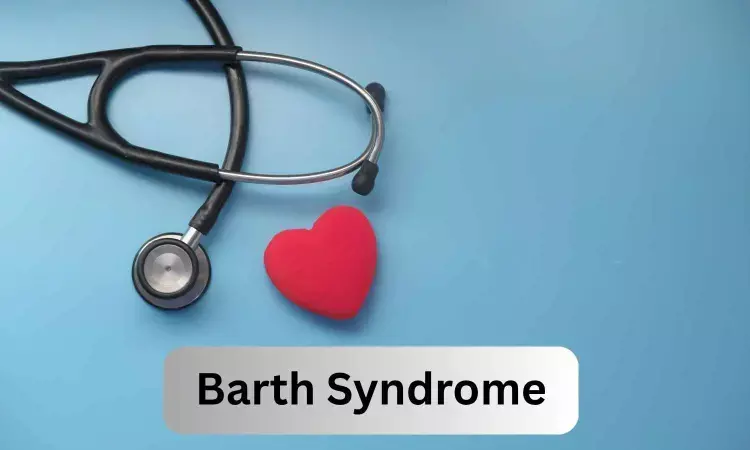- Home
- Medical news & Guidelines
- Anesthesiology
- Cardiology and CTVS
- Critical Care
- Dentistry
- Dermatology
- Diabetes and Endocrinology
- ENT
- Gastroenterology
- Medicine
- Nephrology
- Neurology
- Obstretics-Gynaecology
- Oncology
- Ophthalmology
- Orthopaedics
- Pediatrics-Neonatology
- Psychiatry
- Pulmonology
- Radiology
- Surgery
- Urology
- Laboratory Medicine
- Diet
- Nursing
- Paramedical
- Physiotherapy
- Health news
- Fact Check
- Bone Health Fact Check
- Brain Health Fact Check
- Cancer Related Fact Check
- Child Care Fact Check
- Dental and oral health fact check
- Diabetes and metabolic health fact check
- Diet and Nutrition Fact Check
- Eye and ENT Care Fact Check
- Fitness fact check
- Gut health fact check
- Heart health fact check
- Kidney health fact check
- Medical education fact check
- Men's health fact check
- Respiratory fact check
- Skin and hair care fact check
- Vaccine and Immunization fact check
- Women's health fact check
- AYUSH
- State News
- Andaman and Nicobar Islands
- Andhra Pradesh
- Arunachal Pradesh
- Assam
- Bihar
- Chandigarh
- Chattisgarh
- Dadra and Nagar Haveli
- Daman and Diu
- Delhi
- Goa
- Gujarat
- Haryana
- Himachal Pradesh
- Jammu & Kashmir
- Jharkhand
- Karnataka
- Kerala
- Ladakh
- Lakshadweep
- Madhya Pradesh
- Maharashtra
- Manipur
- Meghalaya
- Mizoram
- Nagaland
- Odisha
- Puducherry
- Punjab
- Rajasthan
- Sikkim
- Tamil Nadu
- Telangana
- Tripura
- Uttar Pradesh
- Uttrakhand
- West Bengal
- Medical Education
- Industry
First oral drug shows promise for Barth syndrome heart and muscle symptoms in new study

Researchers at Tohoku University have discovered that an oral drug called MA-5 can improve both heart and muscle problems in Barth syndrome, a rare genetic disorder affecting 1 in 300,000 births worldwide with no current cure.
Barth syndrome is caused by mutations in the TAZ gene that leave patients-mostly young boys-with weakened hearts, muscle fatigue, and increased rates of infection. Many require heart transplants, and current treatments only manage symptoms without addressing the underlying cause.
The research team, led by Professors Takaaki Abe, and Takafumi Toyohara, and first author Yoshiyasu Tongu, tested MA-5 on cells from four Barth syndrome patients and in fruit fly (Drosophila) models of the disease. Published in The FASEB Journal on June 21, 2025, their findings reveal that MA-5 boosted cellular energy (ATP) production by up to 50% and protected cells from oxidative stress-induced death.
"What excites us most is that MA-5 works by targeting the fundamental problem in Barth syndrome-defective energy production in mitochondria," explains Abe. "Unlike current treatments that only manage symptoms, MA-5 actually improves the root cause of how cells generate energy."
MA-5 was chosen as a treatment because it enhances interactions between two crucial mitochondrial proteins-mitofilin and ATP synthase-leading to more efficient energy production. As such, this mechanism directly addresses the cause of cellular dysfunction in Barth syndrome.
In human muscle cells derived from Barth syndrome iPS cell models, MA-5 corrected abnormal mitochondrial structures and reduced cellular stress markers. When tested in Drosophila with Barth syndrome, the drug dramatically improved their climbing ability (capacity for physical exertion) and normalized their elevated heart rates-two key symptoms that mirror how the disease affects humans. Furthermore, MA-5 restored normal mitochondrial structure in the Drosophila muscle tissue.
These promising results suggest that MA-5 addresses the largest challenges faced by patients with Barth syndrome, which would significantly improve their quality of life. Phase I clinical trials in Japan have been completed successfully, and the research team is preparing to start Phase II trials soon.
“We’ve validated MA-5 using patient cells, iPS cell models and a Drosophila model of Barth syndrome,” remarks Abe. “The evidence from all of these studies supports its potential effectiveness in patients with Barth syndrome, which we hope to examine more in the next clinical trial.”
Considering the limited options for treatment currently available, this research provides hope for a better future for patients and their families. Critically, MA-5 can be taken orally, which makes administration significantly easier for pediatric patients. It is the first oral medication for Barth syndrome to progress to the clinical trial stage.
The team's findings suggest that MA-5 could become the first disease-modifying treatment for Barth syndrome, offering new therapeutic options beyond current symptomatic management.
Reference:
Yoshiyasu Tongu, Tomoko Kasahara, Tetsuro Matsuhashi, Yoshitsugu Oikawa, Ryota Akimoto, Yuhan Luo, Sayaka Sekine, Momoka Suzuki, Hitomi Kashiwagi, Shinichiro Kanno, Mitochondria-Homing Drug Mitochonic Acid 5 Improves Barth Syndrome Myopathy in a Human-Induced Pluripotent Stem Cell Model and Barth Syndrome Drosophila Model, The FASEB Journal, https://doi.org/10.1096/fj.202401856RRR.
Dr Prem Aggarwal, (MD Medicine, DNB Medicine, DNB Cardiology) is a Cardiologist by profession and also the Co-founder and Chairman of Medical Dialogues. He focuses on news and perspectives about cardiology, and medicine related developments at Medical Dialogues. He can be reached out at drprem@medicaldialogues.in


